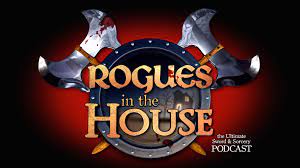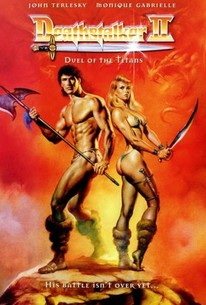Some of the YouTube creators I follow have all voiced a similar lament in the past few weeks.
Views are plunging. Old video types they used to make and reliably get 60-80K views are now getting 10-20K views, and past 20K view types of posts have fallen to 3-5K.
This is not just one type of creator, which might indicate the falling from favor of a certain style of music or literature or pop culture property. Its creators across the board.
It’s Sea of Tranquility, who talks about mostly old-school heavy metal.
It’s Dungeon Craft, who covers the RPG scene and offers DM advice and campaign recaps.
It’s Men of the West, who covers all things J.R.R. Tolkien and Tolkien spinoffs in depth.
And it’s Mike’s Book Reviews, a popular fantasy and horror booktuber (I’m struggling at the moment to find a representative video, but he’s said the same thing).
All of these creators have well over 100K subscribers, but these days are getting only a fraction of views compared to their number of followers. The general trend of their viewership is downward. They make money off of the platform and its impacting their livelihood.
These guys attribute it to several things. More competition. AI slop videos. Their own creativity hitting a wall. But mainly, the algorithm. YouTube and other platforms have shifted to a model where a post’s performance in its first hour of being published more or less determines its future.
If channel subscribers click on a new post in high numbers, other channel subscribers see it. If they click in volume, YouTube promotes the video to non-subscribers/general YT viewers. And if they click on it in volume, there is a chance it could go viral. This is the "golden hour."
YouTube is hoping big posts occur because it creates more buzz for the platform, more eyeballs, and more revenue.
But in this algorithm unless you hit the exact bullseye your views plunge, and fast. Youtube is not incentivized to push decent mid-range creator content to a captive audience, it is incentivized to grow. So the trend favors videos about controversy, and negativity, posts that people click on with the same primitive urges that they do when driving past a car wreck. And old, evergreen content gets completely ignored.
Some of these creators are questioning the future health of their channels and whether they might have to rethink their approach to content, if they continue at all.
I greatly sympathize with creators; algorithms suck, they promote negativity and controversy. Competition is fierce enough without machine slop and AI-fueled human slop shovelers. Many of the YouTube videos I’ve been recommended by the mysterious algorithm are creators reading obvious ChatGPT generated scripts. I know the sound of that language very well; I’ve seen folks in or near my circles using it. It’s embarrassing and disappointing.
I have little else to add save to offer words of encouragement to these true creators, and others, everywhere: Keep going for the love of the game, if nothing else. I have never attempted to monetize this blog, I create because I want to. I realize that’s easy for me to say, a privilege; this is not my job. But I also know that we have zero control over algorithms. Trying to master them is a fool's errand, like trying to win at Monopoly when you don't know the rules and the currency changes without warning. All you can do is keep going with your best and trust that folks like me and others will find you.
Anyway, there’s that. Then there’s three things I want to mention that will probably be of interest to readers of this blog.
1. 25th anniversary re-release of The Lord of the Rings films in theaters in January. It’s hard to believe it’s been 25 years since Fellowship (I was there, Gandalf…. I was there, 25 years ago) but here we are. These are the extended versions, as God intended.
I’m going of course. And bringing my daughters, having bought them “surprise” tickets to open Christmas morning. They kind of know about this already and they don’t really read this blog so I’m OK mentioning it here. I can’t wait to see the films again on the big screen. Yes, the books are better but these remain absolute works of art and (near) peak cinema. We're watching Fellowship on a Friday, TTT on Saturday, and ROTK the following Sunday (we'll need a week in between to regain our stamina).
2. Speaking of Tolkien, scholar and professor Michael D.C. Drout has a new scholarly tome out on JRRT, The Tower and the Ruin: J.R.R. Tolkien's Creation. The Prancing Pony Podcast recently hosted Drout for a fine bit of conversation centered around his book. I’m sure I will order it. I used to follow Drout’s Wormtongue and Slugspeak blog when he was keeping it up, and his essay “Reflections on Thirty Years of Reading The Silmarillion” remains an old favorite.
3. This fun podcast episode about Karl Edward Wagner’s Bloodstone. I’ve never listened to Bad Books for Bad People before and I’m not certain this episode will cause me to subscribe, but the two hosts gave a fun, comprehensive analysis of the plot (spoilers but I’m assuming you’ve read it) and seemed to enjoy the hell out of the story, even evaluating it in within grimdark/sword-and-sorcery/sword-and-planet contexts. A lot of laughter and some good-natured mockery, so if this is the type of thing that gets your panties in a bunch, or if you’re one of those obnoxious types guarding the sacred gates of KEW fandom, then skip it. Otherwise I recommend it because there is so little KEW conversation to be found on the web.









